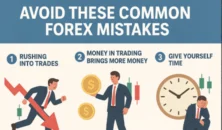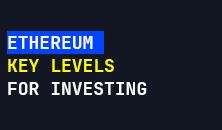
Trading often gets portrayed as a calculated, skill-based endeavor, while gambling carries a reputation of pure chance. However, the reality suggests that trading and gambling share more similarities than many traders would like to admit. By understanding these parallels and the lost truth in trading, retail traders can better navigate the financial world.
Also there is a Random Forex Trade Generator Tools in Online Tools Section which is fun to use!
The Thin Line Between Gambling and Trading
In both gambling and trading, participants engage with uncertainty, risk, and the allure of quick rewards. Sometimes, limitations in trading create opportunities that overshadow the inherent lack of fairness in the market. The truth is that the trading edge often lies in exploiting these limitations, much like a skilled gambler would exploit favorable odds.
The lost truth in trading reveals that success is often dictated by factors beyond individual control. Institutional players possess a disproportionate amount of power, while retail traders operate on limited information—resembling the house advantage in a casino.
The Illusion of Control in Trading
Trading feels like a controlled process where skill and strategy determine outcomes. But just as in gambling, outcomes in trading are influenced by random events and manipulated markets. Traders rely on tools like Gann, Elliott, and Price Action, hoping for consistency. Yet, these tools often lose their effectiveness over time, much like outdated betting systems.
This illusion of control is a critical aspect of the lost truth in trading. Retail traders, much like gamblers, often convince themselves to continue despite diminishing returns.
Success in Trading: A Mirage or Reality?
Success in trading mirrors the allure of a jackpot in gambling—a rare and fleeting occurrence. How many traders consistently achieve lasting success? The reality is sobering. The vast majority lose money, while those who profit often do so by leveraging insider knowledge or market manipulation.
Professional Forex training programs, like gambling tutorials, often prioritize generating income for the trainer over providing genuine value. Rarely do we hear from profitable traders unless they are selling courses or seeking attention post-retirement.
The Market as a Rigged Casino
The financial market operates much like a casino, where the odds are stacked in favor of the house. Brokers, backed by vast resources, lure retail traders with flashy advertisements and tempting bonuses. Yet, their goal is not to help traders succeed but to profit from their losses.
Institutional traders, much like the casino’s house, have access to insider information and the ability to manipulate outcomes. Retail traders, meanwhile, play the role of hopeful gamblers, unaware of the system working against them.
Hidden Truths About Market Manipulation
Market makers frequently test price movements to gauge the potential of a stock. Instead of selling all shares at once, they strategically offload assets while observing active orders. This behavior maximizes profits while creating emotional market reactions.
Similarly, banks fined for unethical practices often repeat the behavior because the profits far exceed penalties. This cycle highlights a fundamental truth: the market operates on manipulation, and retail traders are the most vulnerable participants.
The lost truth in trading reveals that this system thrives on retail traders’ lack of insight and emotional decisions—parallels that align trading with gambling.
The Future of Trading: Bridging the Gap
Artificial intelligence may seem like a game-changer, but even AI relies on the same flawed data systems. As long as retail traders remain uninformed, the gap between them and institutional players will persist.
Much like gamblers who learn to read odds and manage risks, traders must approach markets with realistic expectations. Understanding one’s position in the trading hierarchy is crucial for long-term survival.
Conclusion: Trading Through the Lens of Gambling
Trading and gambling share a deeper connection than most realize. Both involve risk, manipulation, and the illusion of control. By recognizing the lost truth in trading—that markets are inherently tilted in favor of institutional players—traders can adopt strategies to protect themselves.
Awareness is the first step. The sooner traders recognize the parallels between gambling and trading, the better equipped they’ll be to navigate these complex financial markets.








[…] all don’t forget to check “Gambling is similar to Trading, Not the other way Around!” […]
May I have information on the topic of your article?
Yes Of Course